|

Synopsis:
In turn-of-the-century Paris, a teen (Leslie Caron) living with her grandmother (Hermione Gingold) is groomed by her great-aunt (Isabel Jeans) to be a courtesan — but when a family friend (Louis Jourdan) takes a romantic interest in young Gigi (Caron), she begins to question her future.
|
|
Genres, Themes, Actors, and Directors:
- Coming-of-Age
- Cross-Class Romance
- Historical Drama
- Leslie Caron Films
- Louis Jourdan Films
- Maurice Chevalier Films
- May-December Romance
- Musicals
- Vincente Minnelli Films
Response to Peary’s Review:
Peary writes — and I agree — that Vincente Minnelli’s “exuberant musical, the winner of nine Academy Awards including Best Picture”, features a “bright and witty” script (based on Colette’s 1944 novella), “appealing” stars, “colorful costumes and sets [evocative of] Paris [in] 1900”, and “some charming songs” — including Peary’s (and my) favorite, “I Remember It Well”, as Gingold and Maurice Chevalier “warmly sing of their long-ago romance”. Indeed, I was pleasantly surprised to revisit this film for the first time in over 20 years (I last saw it as a teenage ff), and to find that I appreciate it much more now that I’m better able to understand the nuances of its social milieu. Without a grasp of the “Belle Epoque” societal norms that Colette was depicting in her story, it’s difficult to understand the basic premise of the story, or to fully appreciate the type of dilemma faced by Gigi and Jourdan’s “Gaston” — so younger film fanatics should be duly forewarned.
Storyline aside, however, the film — often designated as the last great MGM musical — works on nearly all other levels. To elaborate on Peary’s points above, it also features excellent use of authentic outdoor locales in France, vibrant Technicolor cinematography, and songs that are integrated seamlessly into the narrative (I’m especially fond of how “Waltz at Maxim’s [She’s Not Thinking of Me]”, with Eva Gabor as Jourdan’s mistress, is handled). Meanwhile, most of the cast is top-notch, with Caron in particular demonstrating a tremendous leap in acting ability since her 19-year-old debut in Minnelli’s An American in Paris (1951). She manages to effectively portray Gigi both as an innocent adolescent and as an emergent courtesan; we can easily understand why Jourdan would fall for her. Jourdan (second choice after Dirk Bogarde, who would have been wonderful) capably embodies bored Gaston (his clever duet with Chevalier — “It’s a Bore” — allows us to understand his character within just a few minutes); but I’ll admit I find Chevalier — especially as he sings “Thank Heaven for Little Girls” (my least favorite number) — a tad creepy.
Redeeming Qualities and Moments:
- Leslie Caron as Gigi

- Hermione Gingold as Madame Alvarez
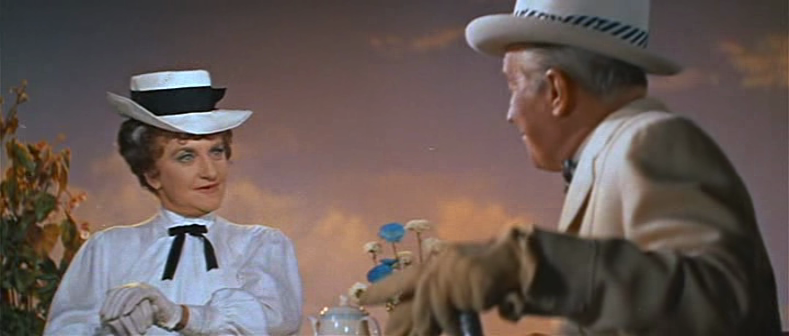
- Lovely musical numbers — especially Gingold and Chevalier’s duet “I Remember It Well”
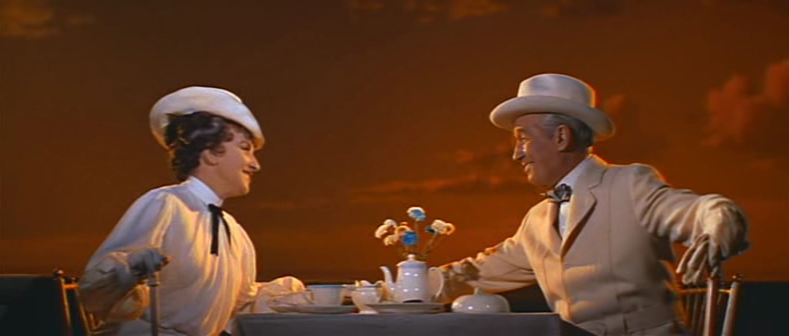
- Fine period production design and costumes
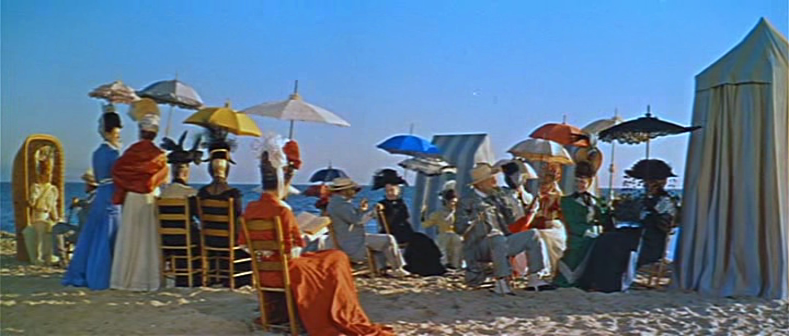
- Vibrant Technicolor cinematography
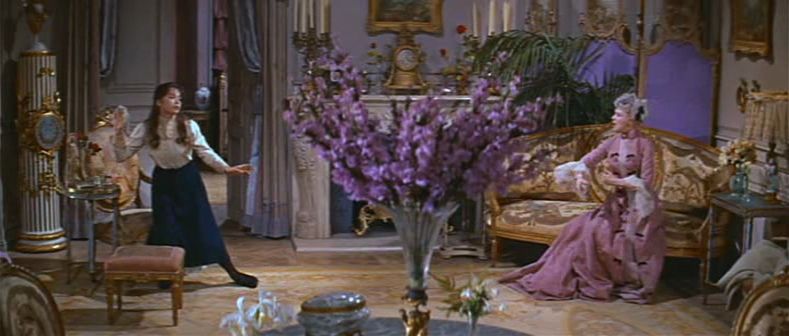
- Excellent use of authentic Parisian locales
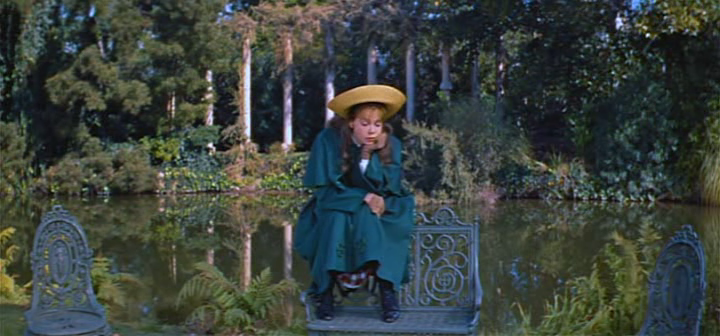
Must See?
Yes, as an Oscar-winning classic.
Categories
- Genuine Classic
- Oscar Winner or Nominee
(Listed in 1001 Movies You Must See Before You Die)
Links:
|







One thought on “Gigi (1958)”
Not really a must – though I’m prepared for the many who would disagree with me. 😉
It’s no secret that I am not a huge Vincente Minnelli fan. Although I will concede that a number of his high-profile films often have a striking visual element, I feel simultaneously that it’s those same films that have the effect of being stodgy in their narrative and execution.
‘Gigi’ is like that for me.
When I was younger, I read a fair amount of Colette’s work, and enjoyed her writing. But this translation to the screen bears a heaviness that is hard for me to shrug off. For two reasons: you have a main character (Jourdan) who is bored with life – and that pulls things down some. And you have a main plot which is all about teaching the main character how to slowly make her way to being a stuffy, wax-figure-elegant female member of society.
For me personally as well, the songs here don’t help matters much. (The score is actually similar to the writing team’s score for ‘My Fair Lady’.) As a lyricist, Alan Jay Lerner tends to browbeat the listener; he gives a song a theme, and then tends to repeat that theme ad nauseum throughout each individual song, in a way
that sounds less enriching than repetitive. …Though, if I have to pick a favorite, I would agree with the choice of “She’s Not Thinking Of Me”; some of that is very amusing – and Jourdan sells the song nicely.
Halfway through watching this film, I start feeling my energy being sapped out of me, making me resist what progresses. I don’t particularly care about what happens – or the lives of these people.
That said…I think Jourdan and Caron have sporadic moments of being effective. Chevalier, on the other hand, is in the unfortunate role of ‘Narrator’, which also seems intrusive more often than his just being another character.
I’m sure that there are those who love this film for the Oscar-honored semi-extravaganza that it is. Some may even find it sweet and/or nostalgic. But I kind of agree with Jourdan’s character statement overall: “It’s a bore.”